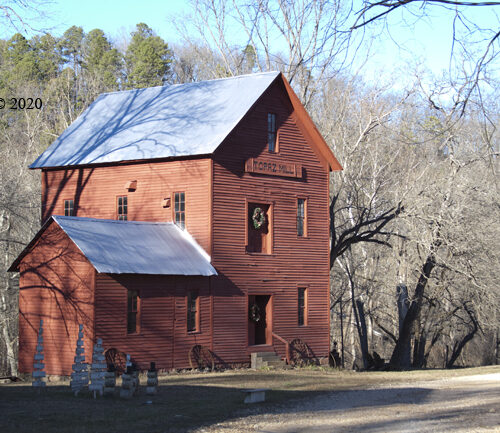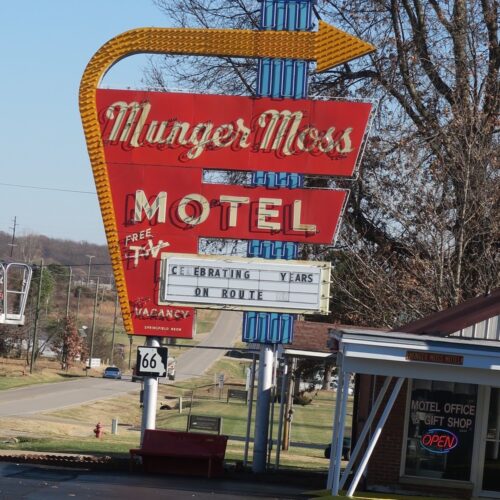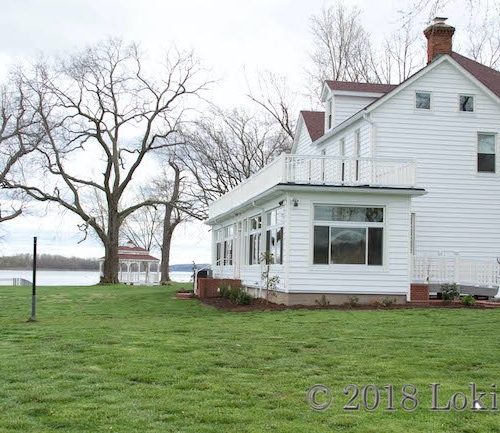I recently learned that a dear woman who greatly influenced me, Julia Johannesmeyer, especially in the early days of this journey to become a travel writer, passed away. I last saw her and “hugged her neck” a few years ago, inside her little rock home in Freeburg, Missouri. She was 95 and leaves behind family and friends who will always be grateful for her loving existence. This recollection of her is from a story I wrote about her back in 2011, and it refers to another story about her from a decade earlier. ~BB
Anne of Green Gables nailed the concept of the whole kindred spirit thing, and I’ve seen it play out a few times in my life between myself and older women. Women who might have a few years on me, but who could “take” me in the humor or energy department, get one over on me and we’d both laugh hard about it. One of those such ladies in my life is my kindred spirit Julia from Freeburg, Mo.
Julia and I have been on a lot of little road trips for stories for my travel columns in Missouri newspapers and magazines. We’ve visited places like old resorts built from St. Louis World’s Fair materials, and her farm from when she was a little girl where I wheeled and dealed and bought two farm chairs from her brother, and we’ve picnicked near the Osage river, and she’s told me stories about when they took her teenage brother from the river, blue and dead and about what that felt like, and she’s told me stories about what it was like to grow up in this part of the world — where rocks spring forth like crops each year. And we’ve laughed and sang and played piano duets together, and snuck way up into a country church belfry one time to see the view and we never told Cletus (who was sitting in the parking lot in his car) what we were doing in the church. We’ve bluegrassed and sat on grass and eaten chili with leaves falling all around us at Marie’s Hollow and Herb Farm, and pinched blossoms off flowers at the Governor’s Mansion (Melody calls it “deadheading” and says it needs to be done anyway) and tried on too many funky hats in antiques stores. We’ve had a lot of fun.
One of my favorite columns I ever wrote was about Julia, and about when she was a midwife.
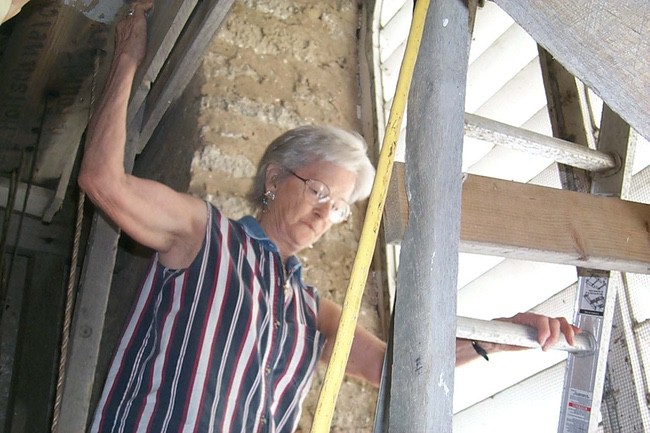
Midwifery and mother’s helpers in the Ozarks
After a particularly bleak and gray winter, we can take heart knowing that soon we will see signs of new life. Green sprouts and purple flowers shoot from the ground. When we look out at pastures, we see baby calves tugging at their mothers’ udders. Lambs frolic with abandonment while warm breezes, coupled with an earthy scent, rustle the grasses.
Babies symbolize spring. With this thought, let’s go back to a time when mothers gave birth in their homes, in their own beds, and it was as natural as the process taking place out in the fields in the springtime.
But these mothers could not manage birth on their own. Often, they hired live-in help not only to assist with the birth of the baby, but also to manage the daily affairs of the household.
A Day Out
Mozelle Hutchison, Melody (Johannesmeyer) Buersmeyer and I once spent a morning at Julia (Klebba) Johannesmeyer’s kitchen table in Freeburg. We had gathered for a cup of coffee and to hear Julia – a spry lady with a twinkle in her eye – tell us about her former vocation. She once worked as a mother’s helper in the Ozarks and even delivered a baby or two before the doctor arrived.
Julia grew up on a farm near the famous resort of Gascondy in Osage County in the 1920s-’30s. Not only did she witness the birth of livestock, but also when she was 15 she helped a midwife deliver a neighbor’s baby. During the birth, the midwife instructed Julia on the procedures.
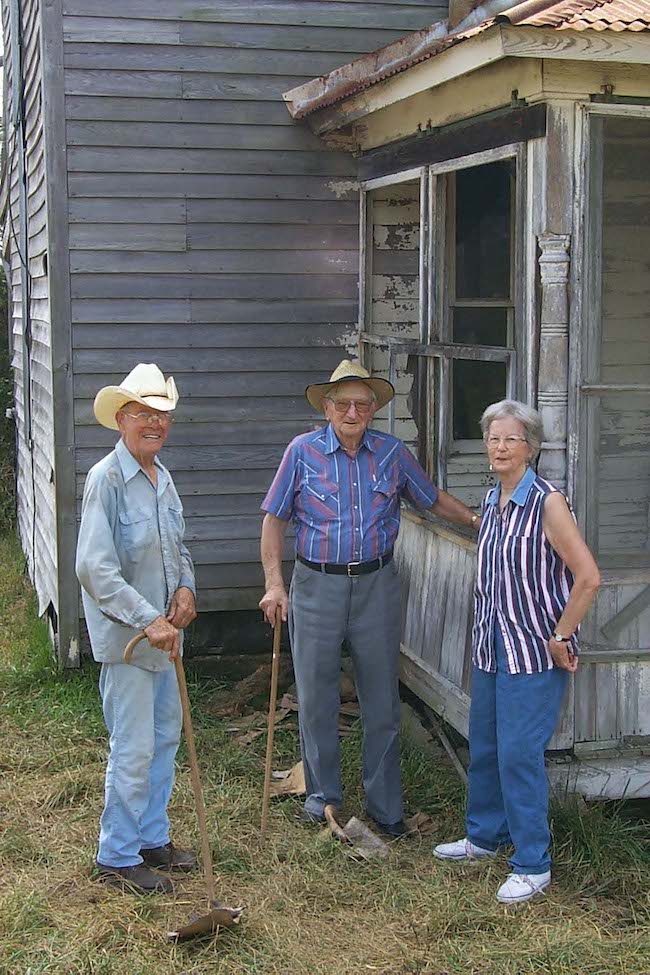
Julia recalled, “At 16, I only went through the eighth grade and the high school was too far from anywhere. I helped Dad more on the farm than I helped Mom in the house.” She said her parents volunteered her to help expectant mothers in the area. She said, “The word just got around and if I was available, I would help.” Usually this meant Julia visited the family, met the children and learned about the chores expected of her. Then, Julia would move in with the family a few days before the baby’s arrival.
When it came time for the blessed event, the husband would call or fetch the midwife or doctor. Julia said she prepared the bed for the birth by placing a pad, constructed of several old blankets or layers of cotton fabric sewn together, on the bed. But first, she would place a layer of newspapers on the bed. She said, “You know, you saved all that stuff back then.”
As for husbands being present during the birth, it did not happen. Julia said, “I don’t remember a husband ever acting all excited about it, because it was just a natural thing. They stayed nearby in case we needed more help. They were never in the room.”
If the doctor or midwife could not get there, Julia rolled up her sleeves and delivered the baby. She recalled, “After delivering the baby, I put him on his mother’s tummy. Then, I wrapped the baby and laid him on the bed. I tied the cord in two places and waited until I felt the heart beat and then cut the cord off.” Usually, the doctor or midwife would be on the spot for the delivery of the placenta, but Julia remembered doing that, too. She said, “In later years, we didn’t use water to wash them off as before, we used a baby oil to wipe them down and it kept them from getting that cradle cap.”
If the doctor or midwife were there for the birth, they would often give the mother quinine for the pain. Julia said she always boiled water, and then sterilized the scissors and string.
After the delivery, the mother could rest, while Julia kicked into high gear. Laundry had to be done – including the particularly soiled linens from the birthing and baby diapers. Often these had to be done by hand. Since new mothers had to stay in bed for nine days after birthing, Julia’s job usually entailed two weeks of constant duty. She said, “It was my job in the mornings to clean up her bed, bathe her, take care of the baby, feed the children, and get the eggs.” Julia also milked cows, took the kids to church, prepared all the meals and welcomed visitors into the home. For her efforts, she received five dollars per week.
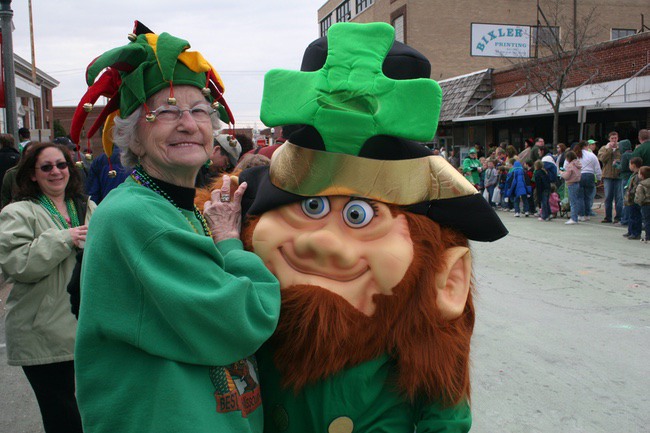
Julia worked as a mother’s helper for seven years, before she married. She delivered her own sister’s baby, along with the help of her other sister. She recalled delivering a baby on a cold night, while all the children watched and snow blew in through the cracks of the house. One family named their daughter after her, and another family (in St. Louis) insulted her and called her a “green country girl.”
With a variety of experiences, including seeing babies who were stillborn and babies who cried without a slap, and then having seven of her own babies, Julia Johannesmeyer knows about life. With a deeply instilled appreciation for babies, Julia proudly showed us her photographs of her new great-grandbabies.
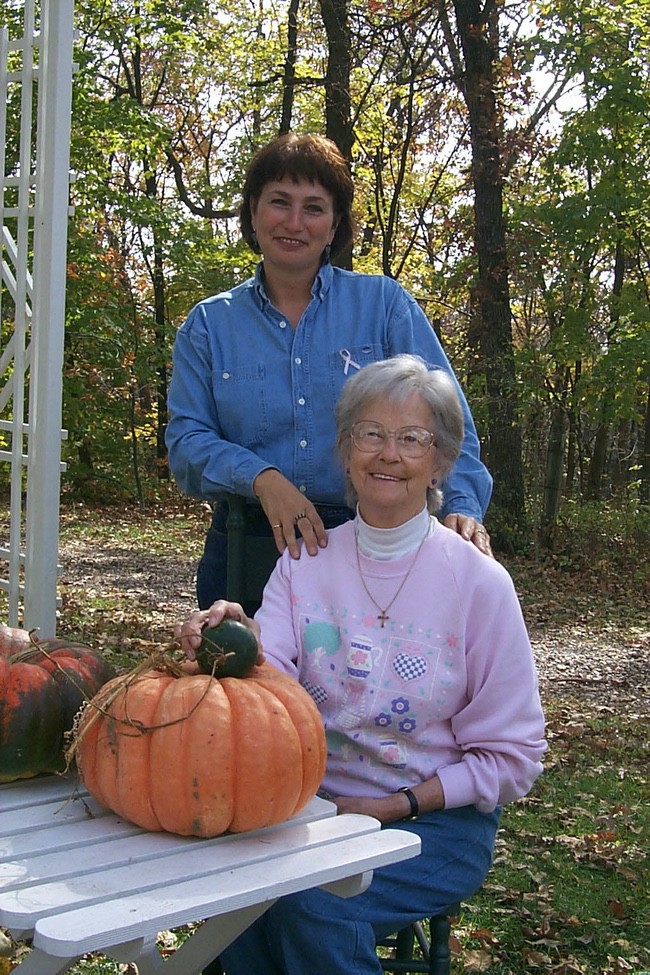
It wasn’t hard to see that Julia must have been a really good mother’s helper, but it’s clear to see that Julia must be an extraordinary mother, grandmother and great-grandmother – one who has wonderful stories to tell.
First published in March 2001. St. James Leader-Journal.

